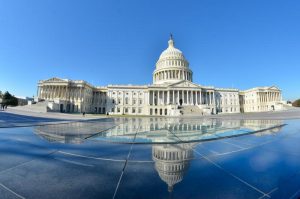Answering the question of how students will return to school for the 2020-2021 academic year is complex, to say the least. There is no single, national plan for addressing the risk of COVID-19 spread among students, educators, administrators and other staff. Instead, recommendations from federal and state officials are combined with input from parents, local governments, teachers and residents. In many cases, the final decision for a path forward is made by each district’s school board.
Whether a school selects a 100% online learning model, a traditional, fully in-person approach or a hybrid of the two can have a major impact on how edtech companies choose to market to prospects in each area. It also can have a substantial influence on which products or services to highlight in marketing efforts and even on the research and development of new offerings.
Understanding the role each group plays can help your organization develop a better understanding of when, how and why to market its services to teachers, administrators, schools and districts.

The federal government can advise and even pressure states and school districts, but it can’t require a specific learning model to be used.
Federal government
The federal government generally provides recommendations and suggestions as opposed to creating laws or strict policies that require a specific learning model for individual districts and schools. The Chicago Tribune reported on messaging and guidance from the Centers for Disease Control and Prevention, Vice President Mike Pence and other federal officials who strongly encouraged a return to the in-person learning model in the 2020-2021 school year. While the intent is clear, it’s important to note that none of the statements or information released rise to the level of an enforceable rule or law.
State government
State governors, departments of health and education and similar authorities are focused on the people and institutions within their borders. They can share more specific information for their audience, offering guidance that takes state-level statistics and concerns into account. For example, in June, the Massachusetts Department of Elementary and Secondary Education released reopening guidance for schools in the state. That document isn’t a directive or an order. Instead, it offers information and suggests what the Department believes is the best path forward.
Local government
Local governments have an even more focused connection to their districts than state-level authorities. However, they don’t have the power to make binding decisions about reopening plans for schools – unless that authority rests with them as opposed to the local board of education or similar entity. Generally, the school board and district officials have the final say on the specifics of education plans.
Educators
Teachers and professionals in related support and supervisory roles don’t make final decisions for school districts. However, as key employees and, generally, organized labor groups, they have a meaningful degree of influence on the schools and districts they work for. Educators worried about the risk of infection have pushed back against plans for traditional reopenings in the two areas we’ve previously mentioned – Chicago and Massachusetts.
Parents and students
Parents and students can also influence school reopening plans through public statements, organizing efforts and similar strategies. While they usually elect their local school boards and have long-term influence over them in that way, they can’t force individual votes during members’ terms.
School boards and district officials
Decision-making power at the level of individual districts tends to sit with the elected or otherwise appointed school board, which will frequently consult with top administrators. These groups usually have the final say on the learning model selected.
Effective marketing strategies for edtech companies
At Agile, we know the uncertainty around the specifics of school reopenings can make things difficult for edtech companies. Our extensive databases and wide range of support services can help your company continue to effectively reach out to and connect with key educators and administrators. Get in touch with us today to learn more.